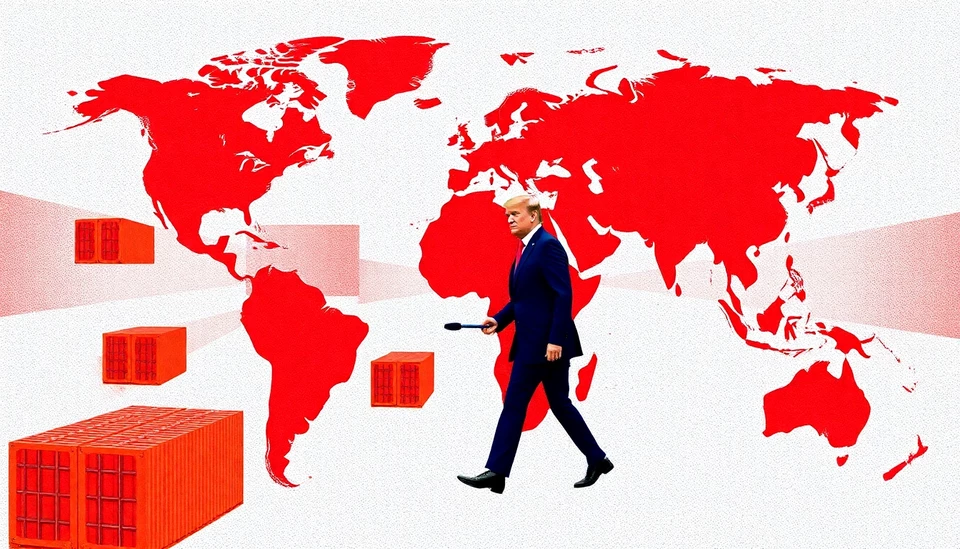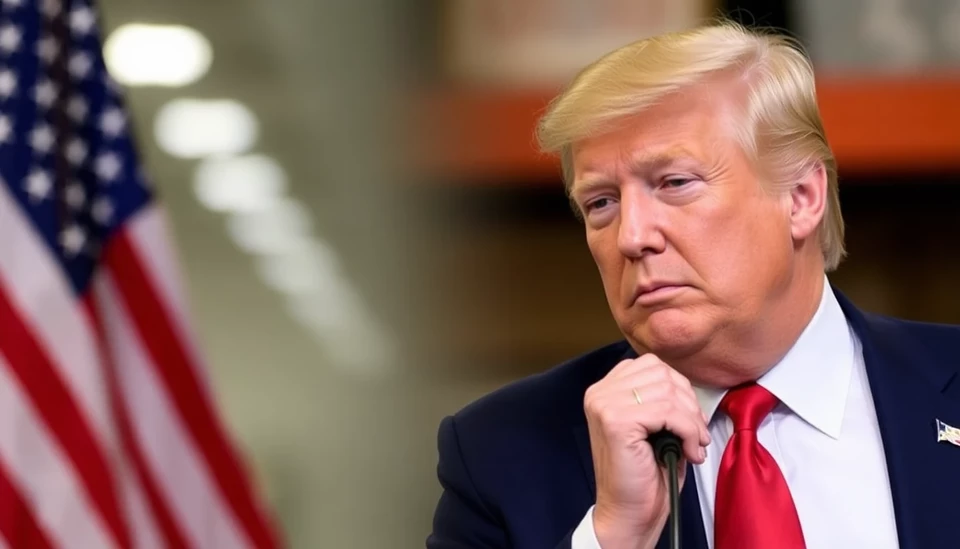
In a significant shift in the U.S. trade landscape, President Donald Trump's administration has introduced new tariffs that are sending shockwaves through the global economy. The controversial policy, aimed at protecting American industries, has started to manifest immediate consequences not just within the United States, but also across international markets.
Market analysts are scrambling to assess the potential impact of these tariffs on global supply chains. With the imposition of duties on various imported goods, there is a prevailing concern among trading partners about the implications for international trade alliances and economic growth. Countries that depend heavily on exports to the U.S. are particularly on edge, as they try to navigate the changing landscape.
The tariffs, which target a broad range of products, signify a stark departure from previous trade practices and reflect a more protectionist approach. As global trade tensions escalate, many nations are preparing to retaliate with their own tariffs, potentially leading to a tit-for-tat situation that could stifle international trade further.
Experts predict that these developments could disrupt flow in the global markets and lead to increased prices for consumers as businesses struggle with higher costs. Besides direct implications on trade balances, there are concerns about the long-term effects on economic partnerships and the stability of the worldwide market environment.
In the wake of the announcements, stock markets have shown volatility, with major indexes fluctuating as investors react to the uncertainty created by these policy changes. Some sectors, such as manufacturing and agriculture, are expected to face particular challenges, raising urgent questions about job security and economic sustainability in those industries.
Furthermore, economists suggest that the broader ramifications of these tariffs could lead to reduced consumer confidence and spending, exacerbating economic slowdowns both nationally and globally. The fear is that what begins as a series of tariff increases may spiral into a more significant economic conflict, reminiscent of trade wars seen in past decades.
While the administration argues that this approach is necessary to reclaim U.S. manufacturing dominance, critics assert that the long-term consequences could outweigh short-term benefits, with substantial risks for both American and global economies.
As the situation develops, stakeholders across various sectors are keeping a close watch on the potential for escalation, anticipating that additional tariffs could be announced or even expanded as the U.S. government positions itself within the international marketplace.
With the stakes higher than ever, the ongoing developments in U.S. trade policy will undoubtedly be a focal point for businesses and governments worldwide, as they each evaluate their strategies in response to this new era of tariffs.
In conclusion, the ramifications of the Trump's administration's tariff policies are being felt far and wide, reshaping the landscape of international trade and prompting all nations to reassess their economic strategies in the face of uncertainty.
#TrumpTariffs #GlobalEconomy #TradeWar #USTradePolicy #InternationalMarkets #EconomicImpact #TradeTensions
Author: Daniel Foster




